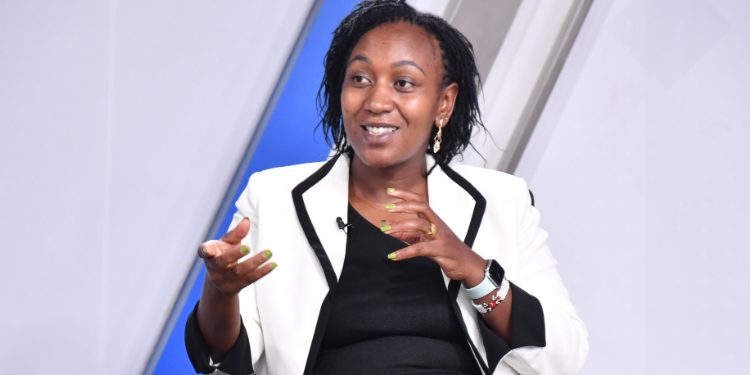The Hustler Fund will credit interest earned over the past year on customer savings accounts starting Thursday, Acting CEO Elizabeth Nkukuu announced Tuesday.
The payout comes as the government-run fund continues working to increase transparency after facing accusations of lack of regulations.
Nkukuu, speaking in an interview with Spice FM, said the Hustler Fund has strategically invested its money in Treasury bills, with stringent measures in place for effective regulation.
Nkukuu highlighted that 70% of the fund’s assets will be regulated by the Retirement Benefits Authority, while the remaining 30% falls under the purview of the Capital Markets Authority. The funds are securely held in custody accounts within the banking sector.
As of the latest update, KES 29 billion has been successfully repaid out of the total borrowed amount of KES 36.9 billion. The fund boasts a robust user base, with 21.5 million registered Kenyans, of which 19 million have borrowed at least once. Remarkably, 8 million individuals are repeat customers, while 5 million have borrowed five times or more.
A notable statistic is the savings record, with KES 2 billion accumulated. The demographic breakdown reveals a balanced participation, with 52% male and 48% female contributors. Nairobi emerges as the epicenter of borrowing activity, housing the largest number of borrowers, while the Central region claims the highest percentage of individuals who have successfully repaid their loans.
Diving into the age demographics, the data indicates a diverse user base. Approximately 72% of participants are below the age of 35, showcasing the fund’s appeal to a younger generation. Surprisingly, 10% of the users are over the age of 60, emphasizing the fund’s accessibility and relevance across age groups.
Individual borrowing patterns also highlight the fund’s impact, with 1,000 people borrowing more than 100 times. The largest single transaction recorded so far is KES 10,000.
On a broader scale, group participation in the Hustler Fund has been significant, with 52,000 groups signing up, 23,000 actively borrowing, and an additional 38,000 at the registration stage.
The cumulative amount borrowed by groups stands at KES 167 million.


















